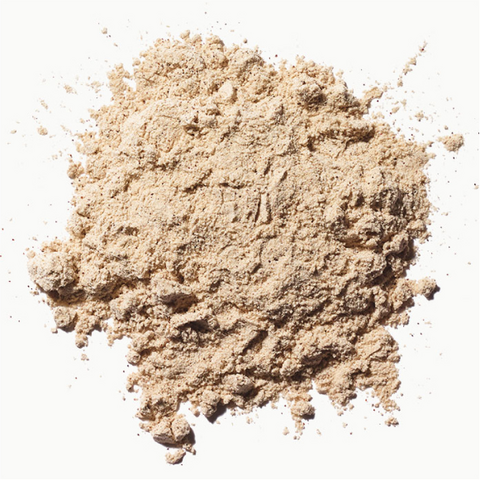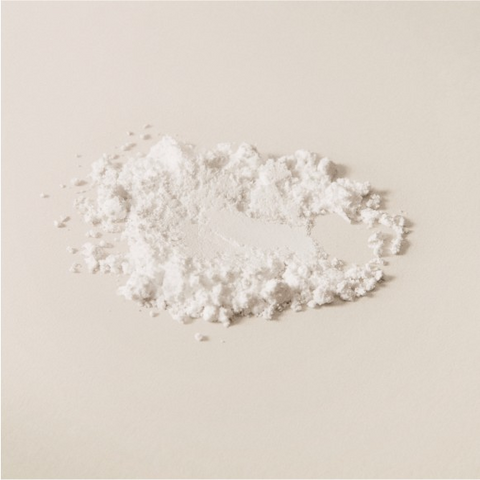Manganese and Magnesium may sound similar, but they differ significantly in their roles and the amounts needed by the body. Manganese is classified as a trace element or micromineral, which means your body requires it only in small amounts. On the other hand, magnesium is a macromineral, essential in much larger quantities each day—hundreds of times more than manganese.
Your body can’t produce Magnesium or Manganese on its own, so you need to get them through outside sources like the foods you eat or through dietary supplements. However, while both minerals are crucial for optimal wellness, they have distinct functions and recommended daily allowances (RDAs) — the average amount you need to meet daily nutrient requirements.
Read on to find out more about the differences between Magnesium vs. Manganese and how to ensure you’re getting enough of these essential minerals.
What is Magnesium?
Magnesium is an abundant mineral that plays a key role in hundreds of enzymatic processes in your body, including:
- Energy production
- Nerve function
- Muscle contraction and relaxation
- Heart function
- DNA replication and repair
How much do you need to meet daily requirements? According to the National Institutes of Health (NIH), the RDA for Magnesium for healthy adults is between 310 and 420 milligrams (mg), depending on whether you’re male or female (or pregnant and lactating).
Your kidneys excrete any excess Magnesium you get from food, but things are trickier with Magnesium supplement sources. Be mindful when taking any type of Magnesium supplementation, especially at high doses. Before taking a Magnesium supplement, always carefully read the label to ensure you follow the manufacturer's dosing guidelines
What is Manganese?
Manganese is a trace mineral, which means your body requires it in small amounts, unlike other minerals that are needed in larger quantities. Although your body cannot produce manganese on its own, it plays a crucial role in many biological processes like enzyme activation and metabolism.
Because your body only requires trace amounts— approximately 1.8 and 2.6 mg daily for adults— Manganese deficiency is less common compared to Magnesium.
Key Differences Between Magnesium And Manganese
Now that you understand the basics of these essential nutrients, let’s break down how they differ in terms of biological function, dietary sources, and deficiency effects.
Biological Roles
Manganese plays an important role in supporting metabolic processes, including amino acid metabolism. There’s evidence that Manganese may help regulate cholesterol and blood sugar levels. Some research also suggests Manganese is a key factor in maintaining bone health.
Magnesium plays an essential role in over 300 bodily processes, from nerve to heart function. Research shows that getting enough Magnesium can help support a healthy stress response, thanks to its ability to regulate the hypothalamic pituitary adrenal (HPA) axis — the part of your brain responsible for managing your fight-or-flight response. Because it’s also involved in muscle contraction and relaxation, Magnesium may help promote calm and improve sleep in people who are deficient.
There’s evidence that maintaining healthy Magnesium levels may help promote overall wellness. Some of the benefits of Magnesium include:
- Lower risk of heart disease
- Blood sugar regulation
- Mood balancing effects
- Improved sleep quality, which has a major domino effect on your well-being
- Pain relief
Dietary Sources
Looking for good sources of Manganese and Magnesium? Try adding the above foods to your diet for improved health.
Manganese-rich foods include:
- Nuts, hazelnuts and pecans, in particular
- Brown rice
- Oatmeal
- Legumes like chickpeas, lentils, and kidney beans
- Spinach
- Black pepper
- Pineapple
- Shellfish
Magnesium-rich foods include:
- Dark leafy greens, like kale, spinach, and Swiss chard
- Beans like kidney beans and black beans
- Nuts, including almonds and cashews
- Bananas
- Raisins
- Oatmeal
- Brown rice
- Salmon
- Chicken

Health Implications of Deficiency
While plenty of foods are rich in Manganese, your body only absorbs between 1 and 5% of it from food. That said, a deficiency of this essential mineral is unlikely because you only need trace amounts of Manganese to meet your daily adequate intake.
There’s limited research on the effects of Manganese deficiency, but not getting enough of this trace mineral might show up as:
- Bone health issues
- Fertility problems
- Blood sugar control issues
- Problems with metabolism
- Low mood (in women)
If you think you may not be getting enough Manganese through your diet, consult with a healthcare professional. They can perform a blood test to confirm whether you’re deficient and need to take dietary Manganese supplements.
The reality is, though, that you’re more likely to experience effects from Manganese toxicity than a deficiency of this essential mineral. Taking too much of this essential nutrient through Manganese supplementation may influence your heart rate and cholesterol and even negatively impact your cognitive health.
While you can get Magnesium through dietary sources, up to 20% of people worldwide don’t get nearly enough through diet alone. Estimates suggest that almost half of people in the United States get less than the daily recommended intake of Magnesium from food sources.
Your risk of Magnesium deficiency is higher if you have certain conditions that affect your gut health or take medication that interferes with nutrient absorption. Diabetes and GI conditions, for example, can impact metabolism and make it harder for your body to use or conserve the Magnesium you consume through food. Your body also absorbs less and excretes more Magnesium as you get older.
Remember that only a healthcare professional can diagnose a nutrient deficiency, and it is possible to take too much Magnesium or Manganese.
A Magnesium deficiency can show up as:
- Insomnia
- Low mood
- Fatigue
- Brain fog
- Headaches
- Digestive issues
- Muscle cramping
- PMS
Get Essential Minerals With Magnesi-Om
Magnesium and Manganese have similar names, but they couldn’t be more different. You need greater amounts of Magnesium to support your overall wellness than you do Manganese. And your chances of being deficient in Magnesium are higher, too.
Without adequate Magnesium levels, you might experience issues like tiredness, cramping, and brain fog.
Ensuring your diet includes various Magnesium-rich foods is a good place to start, and taking a Magnesium powder supplement can help fill in the gaps and raise your Magnesium levels.
Magnesi-Om® contains 3 bioavailable forms of Magnesium plus L-Theanine to help restore cellular balance for relaxation, brain health, and regularity.* Shop Magnesi-Om® today for improved wellness.
Sources
- Magnesium. The Nutrition Source. https://nutritionsource.hsph.harvard.edu/magnesium/
- Magnesium. National Institute of Health. https://ods.od.nih.gov/factsheets/Magnesium-HealthProfessional/
- Carver, Peggy L. Essential Metals in Medicine: Therapeutic Use and Toxicity of Metal Ions in the Clinic. De Gruyter. https://www.degruyter.com/document/doi/10.1515/9783110527872/html
- Zofková, Ivana et al. “Trace elements and bone health.” Clinical chemistry and laboratory medicine vol. 51,8 (2013): 1555-61. doi:10.1515/cclm-2012-0868. https://pubmed.ncbi.nlm.nih.gov/23509220/
- Yang, Jingli et al. “Sex-specific associations of blood and urinary manganese levels with glucose levels, insulin resistance and kidney function in US adults: National health and nutrition examination survey 2011-2016.” Chemosphere vol. 258 (2020): 126940. doi:10.1016/j.chemosphere.2020.126940. https://pubmed.ncbi.nlm.nih.gov/32540546/














